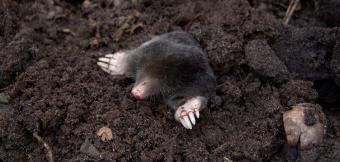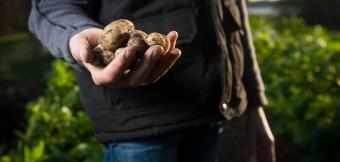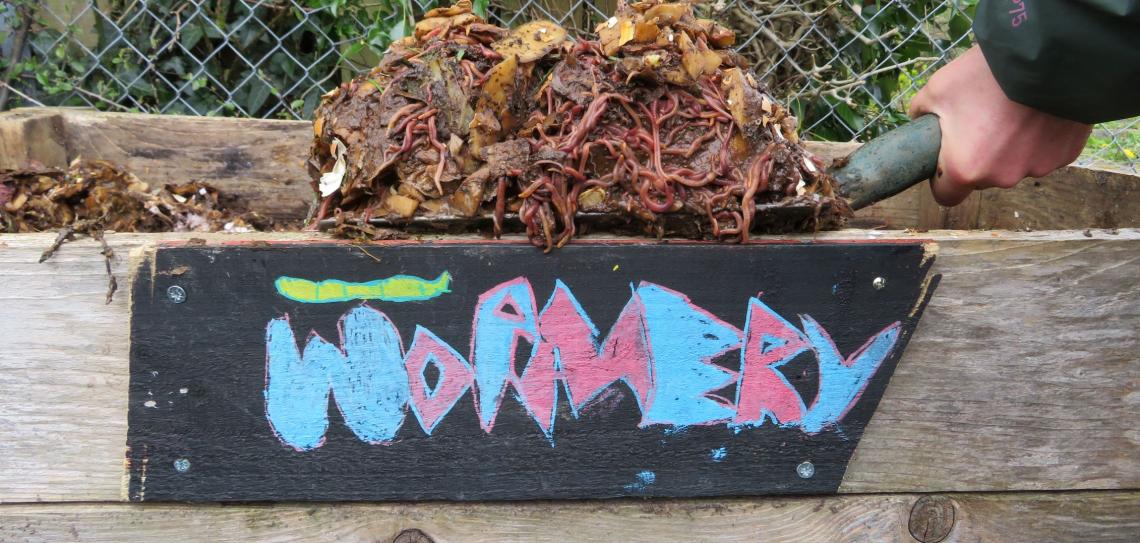
Make compost
Dumping garden refuse and food waste in landfill produces methane, a potent greenhouse gas. Composting it, done properly, produces none. Compost also enriches the soil with nutrients and helps it absorb carbon. Composting can be done in many ways, from domestic to industrial scale.
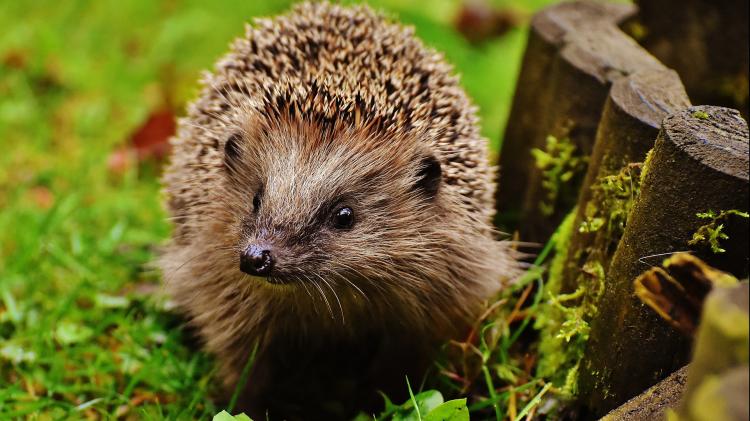
Greenhouse gases from organic waste
Methane is a greenhouse gas 25 times more powerful than CO2. One ton of food or garden waste in landfill will generate 0.25 tons of methane (six tons CO2e*). In contrast, one ton of waste in a compost heap should produce no methane.
Landfill methane is produced because the waste undergoes anaerobic decomposition. The bacteria that decompose the waste do so without oxygen, producing methane. A compost heap, on the other hand, undergoes aerobic decomposition. Because they have access to oxygen, the decomposing bacteria produce CO2, water and heat not methane. But isn’t releasing any CO2 a bad thing? Well, this CO2 would be released however the material decomposed. It only releases the CO2 that the organic matter absorbed from the atmosphere when it was alive.
Domestic composting also means reduced exhaust emissions from waste collection vehicles and reduced costs to local government. Even in an urban area, waste may travel many miles to landfill. Composting kitchen and garden waste at home reduces waste going to landfill by a third.
*Carbon footprints include carbon dioxide, methane, nitrous oxide and other greenhouse gases, but are always stated as carbon dioxide equivalent, CO2e.
Landfill gas is a complex mix of methane and CO2. Production commences about six months after depositing the landfill material, reaches a maximum after about 20 years, and then slowly declines. The gas can be collected and burned on site to create heat or electricity. However, in 2012 only a quarter of landfills in the US were collecting methane. Collecting landfill methane is certainly a good option; but composting is better.
Compost is wonderful!
Returning waste back to the soil completes the cycle of nature, where nutrients are taken up from the soil into plants, then return to the soil when the plants die and decompose.
Homemade compost:
- builds the fertility of your soil.
- improves texture and air circulation in heavy soil.
- helps bind sandy soil together.
- improves plant growth and leads to better yields.
- is free.
- helps to build soil organic carbon.
- is not washed away by rain.
- retains moisture and suppresses weeds.
- requires no oil-reliant machinery, unlike commercial composting.
- creates an awesome community of bacteria, insects, worms, fungi and creepy crawlies.
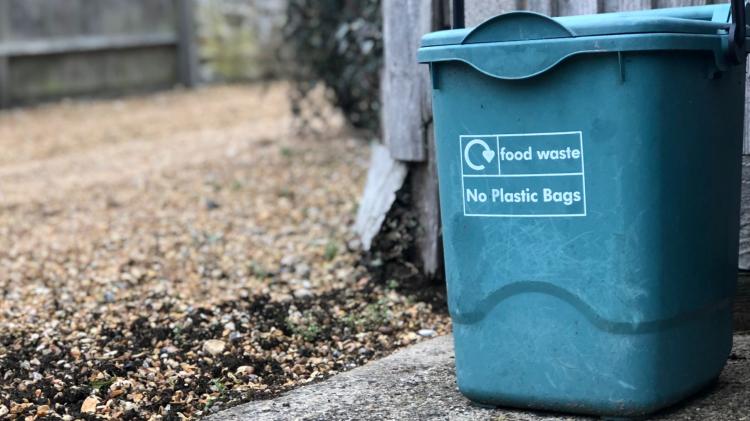
Making good compost
All composting starts with collecting organic material; garden waste and kitchen scraps. Woody stems and meat should be avoided. You can get a special compost caddy for the kitchen, or use an old cereal box, that’s compostable too. Build a simple wooden frame in the garden or buy a basic composter or worm bin.
There are three kinds of domestic composting.
Cold composting is simplest; just gradually pile up your waste material, turn it occasionally, and wait for it to break down over several months. Find out how to make your own.
Hot composting is more efficient but requires more work; assemble a lot of material into a big heap in one go, then allow it to heat up quickly, destroying weed seeds and pathogens and rapidly decomposing the material in a month or so. Hot bins are also rat proof. Find out how to do it.
Worm composting is made by worms in a special bin called a wormery. They eat the waste then produce both liquid fertiliser compost. It works best when the supply of waste is limited and mostly from the kitchen. Find out more about wormeries.
Not all compost heaps are the same; some attention needs to be paid to the heap so it receives the oxygen it needs. Many domestic heaps have too little oxygen or too much water, leading to anaerobic decomposition and methane production. You can generally tell this by the smell (rotten eggs), the appearance (slimy), and the acidity (pH below 5.5). The usual answer is to turn the heap with a fork, adding air and releasing trapped moisture.
Using compost:
- Spread your compost on your soil in spring, up to 5cms (2”) deep.
- Or spread cardboard over an area then put the compost on top; this is called mulching.
- You can use worm fertiliser or compost dissolved in water as a liquid feed.
- To break in undug, weedy ground place seed potatoes on a layer of cardboard then cover with a 15cm (6”) layer of compost.
- Mix compost into the planting hole for fruit trees.
- Use a 50/50 mix with soil to fill window boxes.
Picture credits: 1) Permaculture Association 2) Alexas fotos - pixabay.com 3) Patricia Valerio - unsplash.com
Build a compost heap
Send your biodegradable waste to compost, not landfill
Organise a community compost scheme
Replace peat garden products with locally made compost

